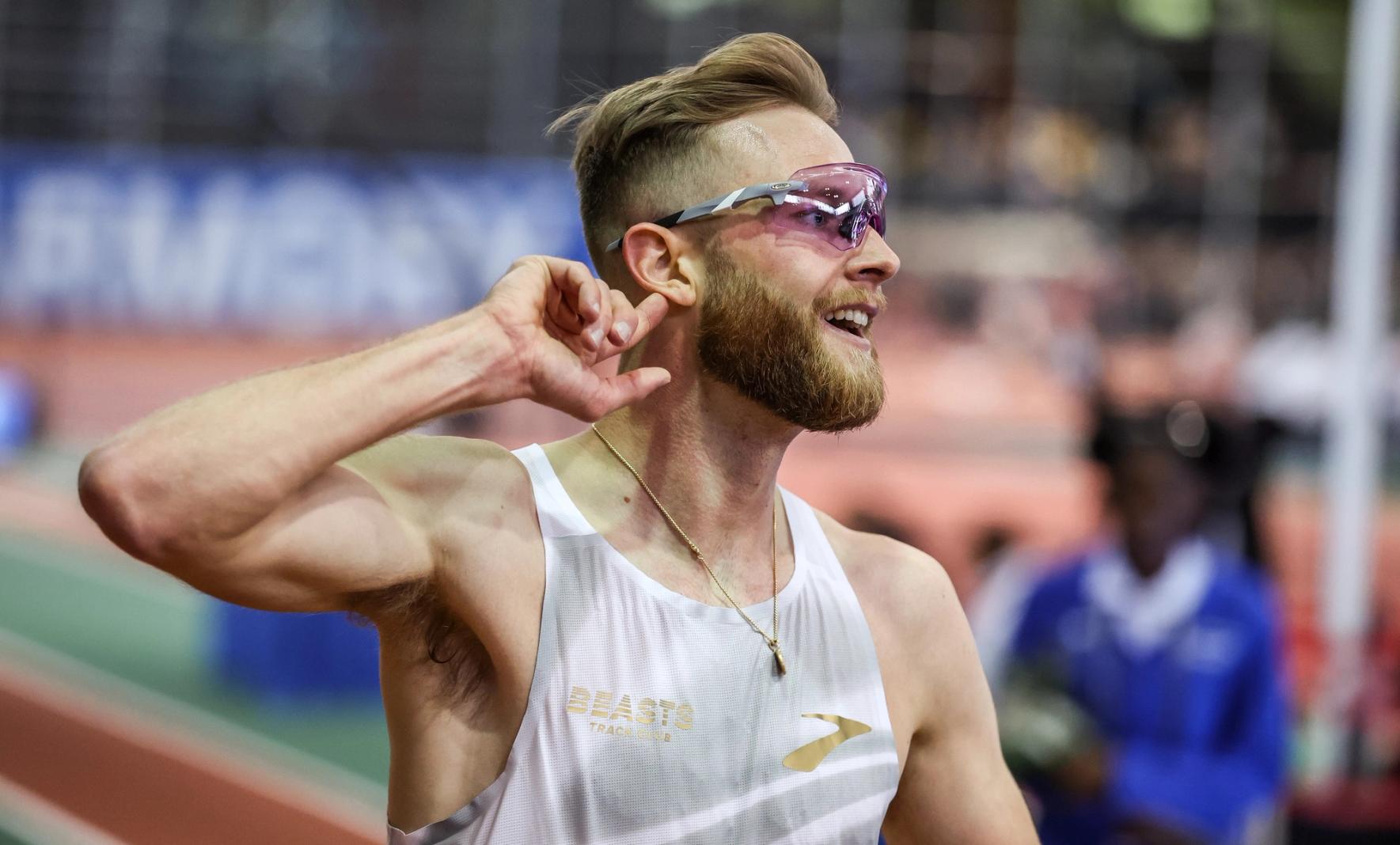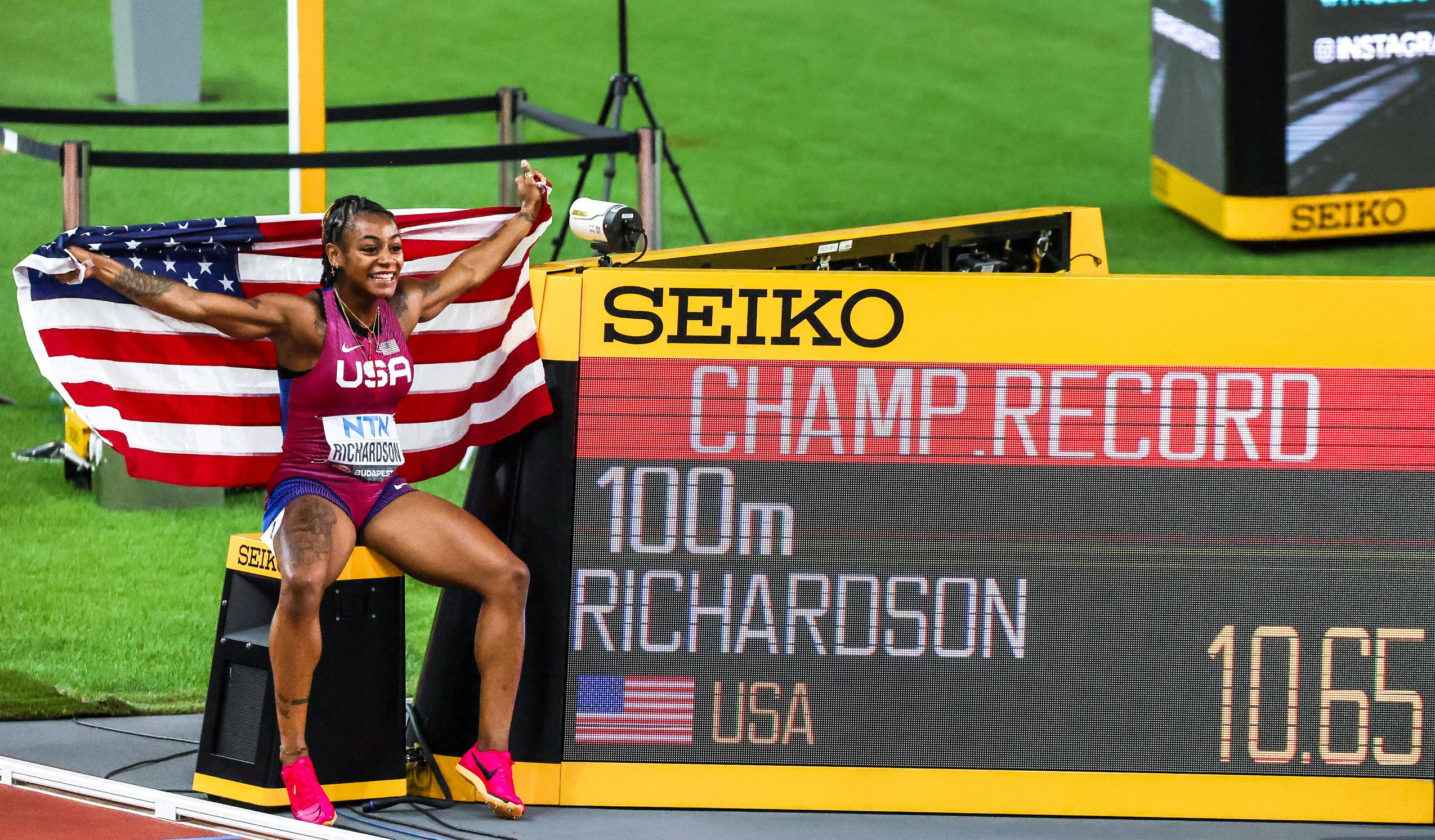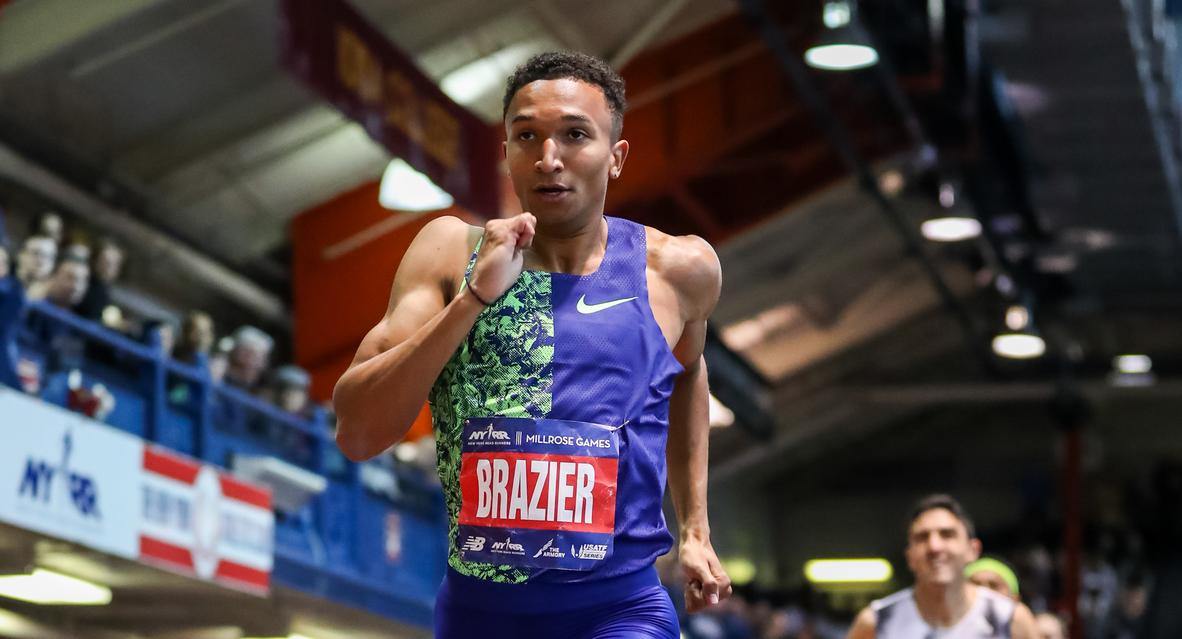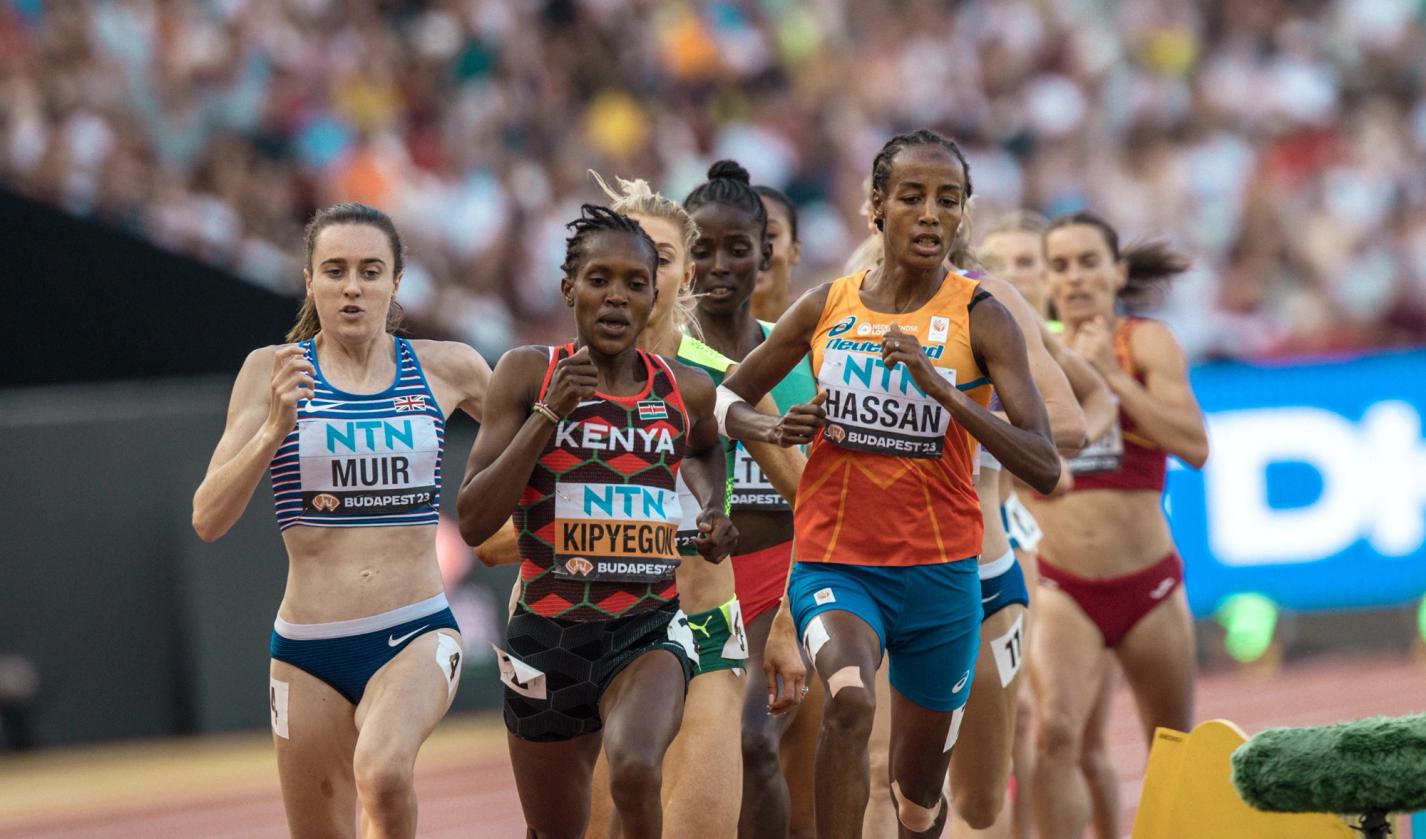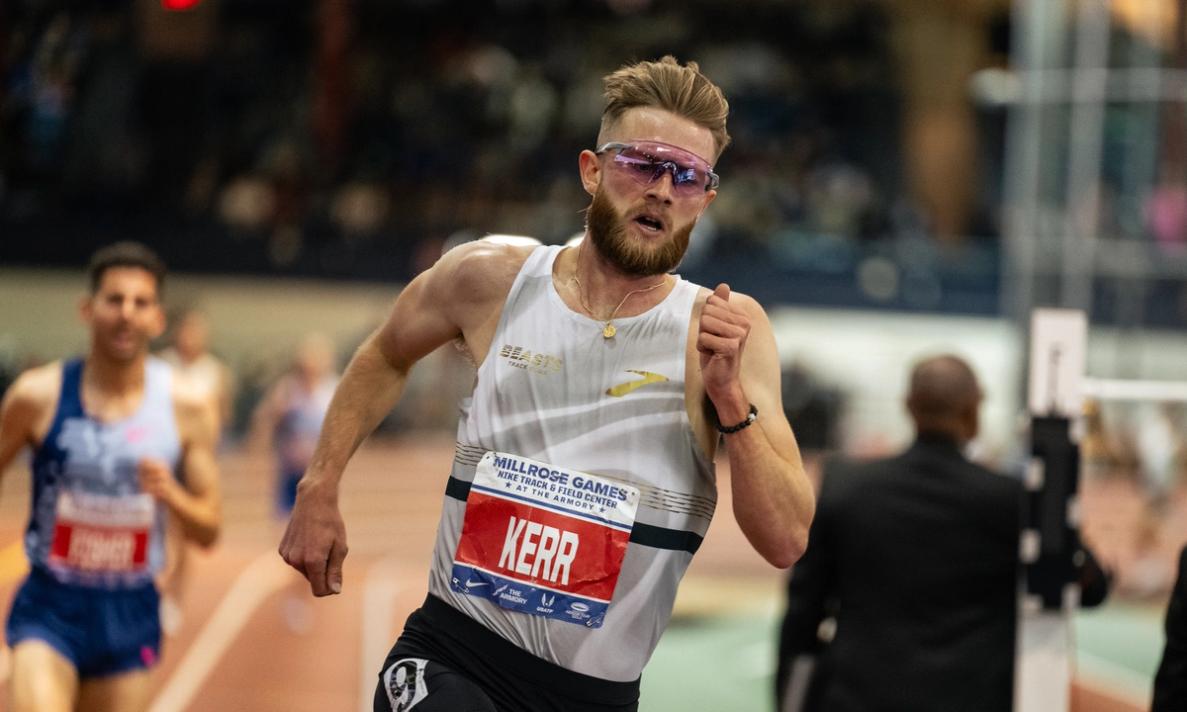By Owen Corbett
February 22, 2024
Ever since the biannual World Indoor Championships were moved to even numbered years in 2004, every other edition – including the one that starts next month – coincides with an Olympic year.
The Olympics represent the be-all and end-all of our sport (I would argue that shouldn’t be the case, but it’s understandable, given that it's the only time the majority of the world’s eyeballs are on track and field.) This belief is seen in the actions of a number of the sport’s biggest stars, who often skip other major championships so that they can focus solely on the Olympics.
Take reigning world champion and newly crowned indoor two-mile world record holder Josh Kerr, who said back in December, “even if you win World Indoor gold, if you don’t make the Olympics, then the year is a failure.” Kerr initially wasn’t even sure if he would compete at World Indoors – despite it being held in his home country of Scotland – out of concern doing so might impede his training for the Olympics.
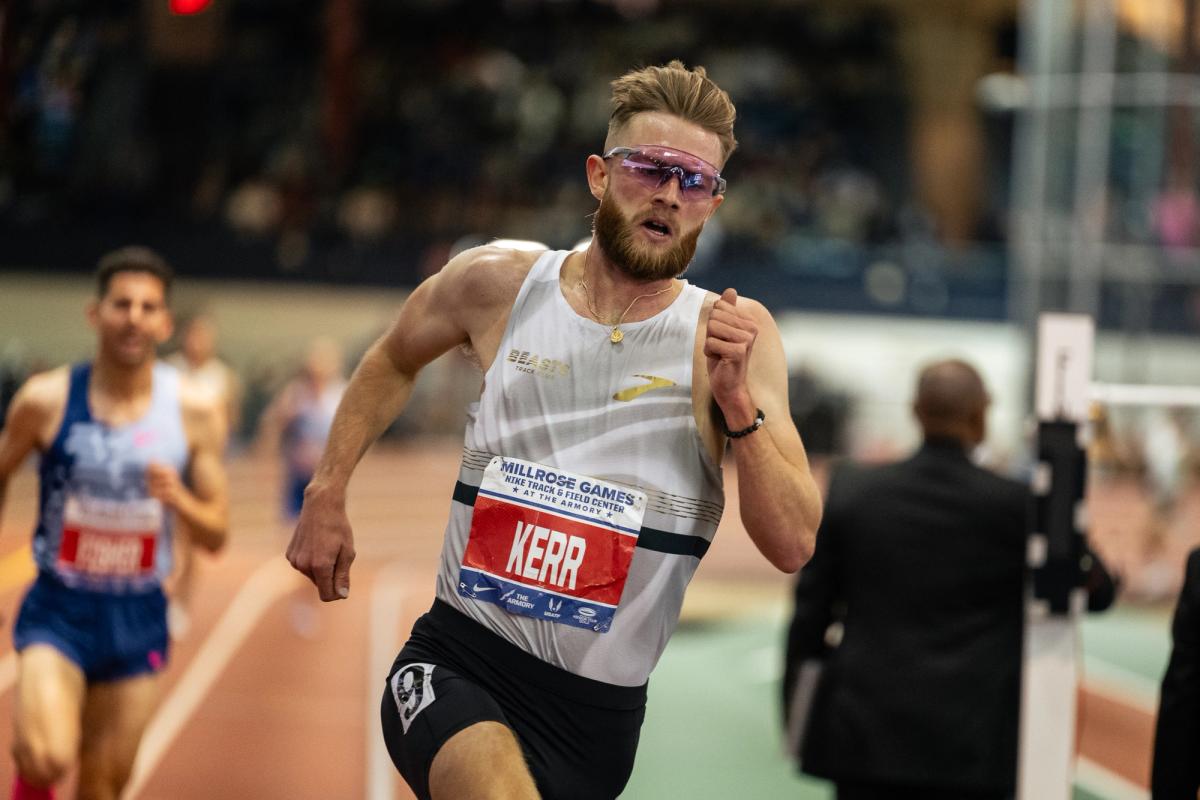
Kevin Morris / @KevMoFoto
While Kerr’s statement about the Olympics carrying more weight than World Indoors is undeniable, the rationale for potentially sitting out a global championship really doesn’t. With 152 days between the conclusion of World Indoors in Glasgow, and the first round of the 1500m in Paris, it’s a little silly to hear Kerr say he can’t peak twice five months apart. After all, the amount of time between his season ending win at the 2023 Fifth Avenue Mile and his world record at Millrose, is nearly the exact same at 154 days.
Fortunately, Kerr has recently announced that he is reversing course and will be contesting the 3000m in Glasgow, but the host team is not without notable absences. Keely Hodgkinson, Dina Asher-Smith, and Katarina Johnson-Thompson are all skipping the event to focus on their Olympic preparations.
Every time that World Indoors and the Olympics have been held in the same year, there are multiple athletes that win gold medals at both, and often one that uses a breakout win at World Indoors as a springboard to their first Olympic medal later that summer. Below are examples of exactly that in each of the four occasions that the events have overlapped on the calendar.
2004: Meseret Defar
In her first year racing senior championships on the track, a 19-year-old Defar earned a bronze medal at the 2003 World Indoor Championships, but failed to make the final of the 5000m outdoors, displaying both her talent and inexperience on the national stage. Defar opened her 2004 championship season returning to World Indoors and in a tactical race, kicked down defending indoor 3000m and outdoor 10,000m champ Berhane Adere.
Come outdoor season, Defar finished sixth and third in her first two 5000m races of the summer, the first of which came behind a world record run by Turkey’s Elvan Abeylegesse. By August, Defar was peaking once again for the Olympics. She won the second heat of the 5000m in Athens, and was one of the favorites heading into the final. Through a tactical first 2000m Defar leaned on her newly developed championship experience, and although she went into the final lap five seconds behind the lead, she sprinted to a comfortable three second win, while the world record holder Abeylegesse finished 12th. In fact, only three women who lined up for the 5000m final also ran at World Indoors in Budapest in March, and all three of them finished in the top five in Athens.
Similarly, a pair of young Russian athletes, 22-year-old Yelena Slesarenko (high jump) and 21-year-old Yelena Isinbayeva (pole vault), won their first global medals with gold at World Indoors in 2004, and followed it up with Olympic gold later that year.
2008: Bryan Clay
In 2004, 24-year-old Bryan Clay set a personal best in the decathlon at the Olympics, but it wasn’t enough to unseat world record holder Roman Šebrle, who turned in an Olympic record score. Clay settled for silver. This was déjà vu for Clay, who led Šebrle heading into the final discipline of the pentathlon at the 2004 World Indoor Championships. Despite Clay posting a personal best in the 1000m and coming away with a personal best overall score, Šebrle finished 10 seconds ahead of him, finishing with a European record score, and the overall win.
Clay would defeat Šebrle for gold at the 2005 World Championships, but the Czech returned to take the title in 2007 as Clay struggled through the competition with injury. Headed into the 2008 Olympic Games in Beijing, Šebrle was 33 years old, but clearly still at a high level with a Wall Street Journal panel dubbing him the “World’s Greatest Athlete.”
Clay, however, was the man that triumphed at the World Indoor Championships in Valencia, with Šebrle dropping out of the competition five disciplines in. History would once again repeat itself with Clay dominating the decathlon in Beijing. Earning silver was Belarusian Andrei Krauchanka, who won the same medal at the indoor championships earlier that year. Šebrle would finish a distant fifth.
As a matter of fact, in all four years that the World Indoor Championships and Olympic Games were held together, the pentathlon winner in the winter would go on to win the decathlon in the summer, with Ashton Eaton, following tradition in 2012 and 2016.
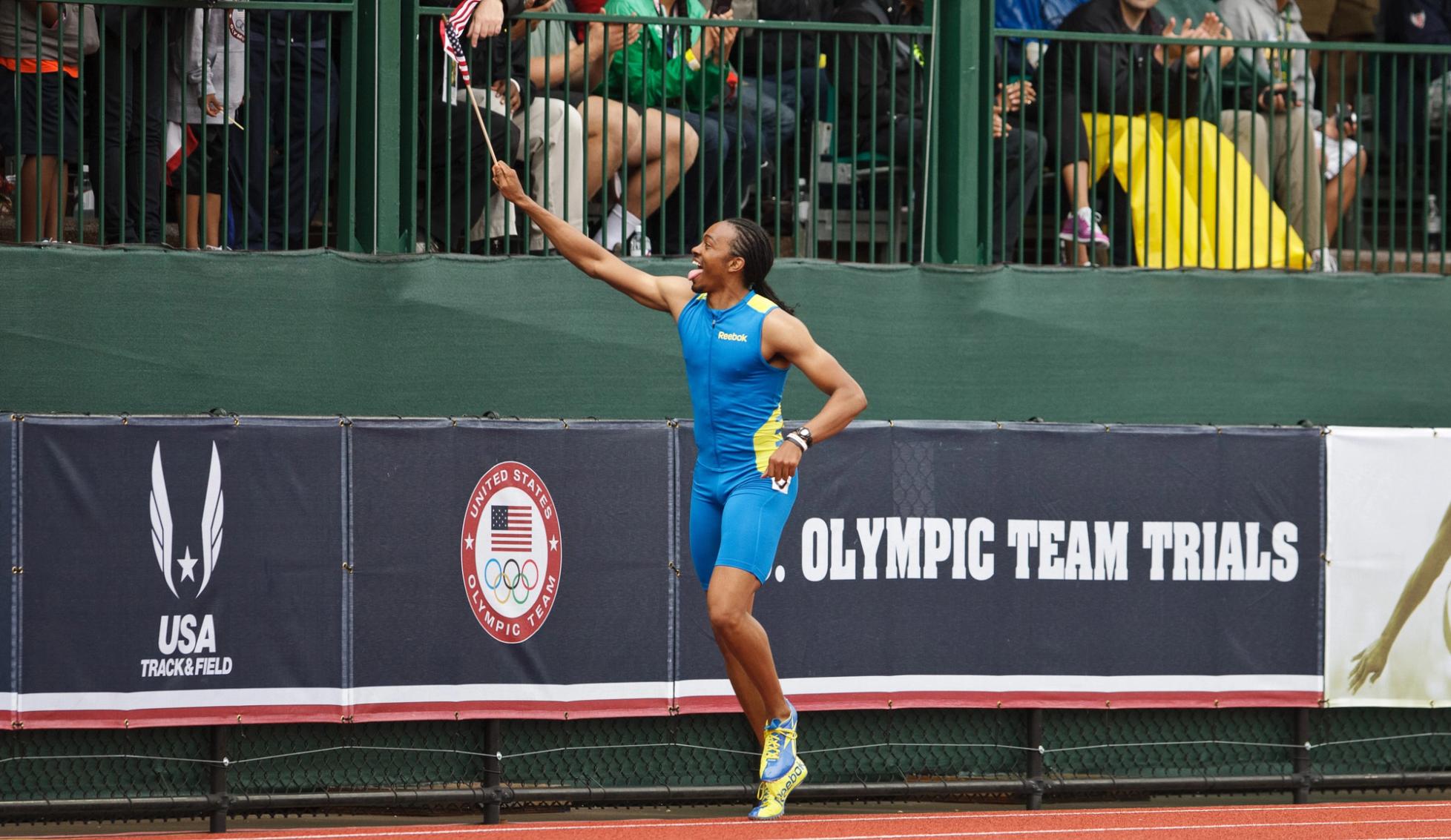
Kevin Morris / @KevMoFoto
2012: Aries Merritt
Despite being the 2006 NCAA Indoor champion in the event, Merritt was not known for his 60m hurdles speed. Of all the 100m hurdles world record holders, Merritt has the slowest 60m hurdles PB since 1989. While 2012 represented a breakout year for Merritt, it did not come before a number of shortcomings.
Merritt became a world junior champion in 2004 at age 18, but he wouldn’t make his first final of a senior championship until seven years later. Merritt finished fourth at the Olympic Trials in 2008, and when he made Team USA for the 2009 World Championships, he failed to make it out of the heats
At the start of 2011, Merritt made a point to improve his indoor times, and set a personal best in the 60m hurdles for the first time since his NCAA title in 2006. The results showed in the outdoor season as Merritt made the final at the World Championships in Daegu, but couldn’t break all the way through, crossing the line sixth.
Merritt invested in the indoor season once again in 2012, winning his first senior U.S. title and qualifying for the World Indoor Championships in Istanbul. Merritt’s World Championship win was only his second 60m hurdles victory of the season, but it was enough to earn him a gold medal and a whole lot of momentum.
Merritt’s encore outdoors represented by far the best stretch of his career. He won 17 of his 21 110m hurdles races, took home his second U.S. title at the Olympic Trials, and earned a gold medal at the London Olympics in convincing fashion, taking down a field that included the last three global champions. One month after the Games, Merritt was still riding high, and ended his season with a world record clocking (12.80) that still stands today.
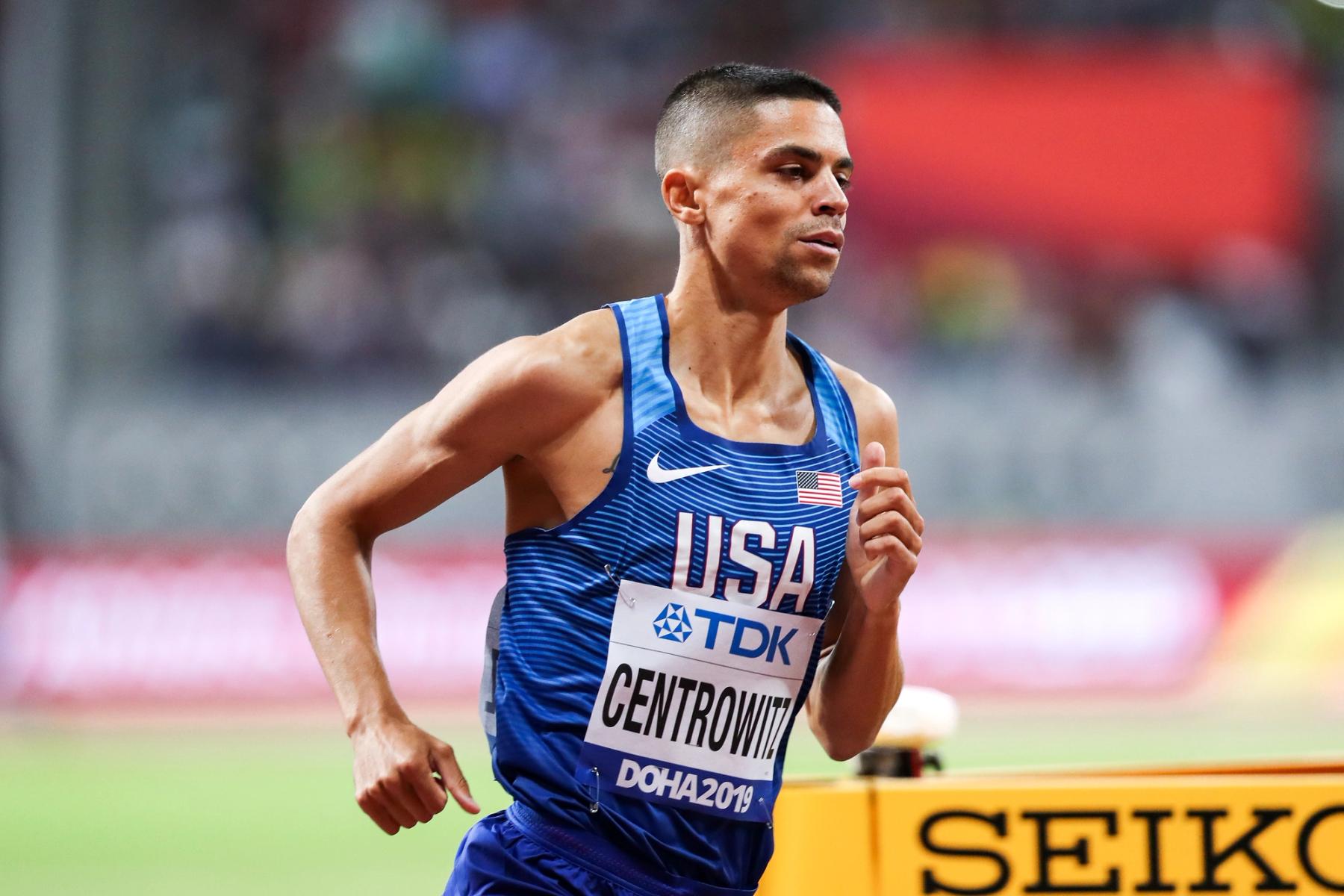
Kevin Morris / @KevMoFoto
2016: Matthew Centrowitz
By the start of 2016, Centrowitz had run in five global 1500m finals, earning two medals, and finishing fourth in a third. He was consistently near the podium due to his blistering last 100m, but a quick rewatch of those performances shows Centrowitz often waiting too long to make his move. Time and again, athletes around Centrowitz would start kicking before him and swallow him up, taking him out of contention before he could unleash his signature move. That changed on home soil at the 2016 World Indoor Championships in Portland, Oregon. While Nick Willis began to string the pack out with two laps to go, the smaller field allowed Centrowitz to stay right on his tail, and gave him a clear lane to pass Willis down the finishing straight.
Centrowitz repeated the strategy in the 1500m final at the Rio Olympics that summer, leading nearly the whole race at a tactical pace. When Ayanleh Souleiman passed Centrowitz headed into the final lap, he squeezed past the former African champ on the inside for pole position at the bell. With no one in his way, Centrowitz closed the final lap in 50.6 seconds, earning the first Olympic gold by an American in the event since 1908.
Similar to Merritt in 2012, 22-year-old Omar McLeod won 110m hurdles gold in Rio as the favorite after winning the 60m hurdles title in Portland. Additionally a young Yulimar Rojas would win her first global medal taking home gold in Portland, before earning a silver medal in the triple jump at the Olympics at just 20 years old.
As you can tell there are countless examples of athletes being at their best for both the World Indoor Championships and Olympics when they are held in the same year. Athletes should cherish the opportunity to be able to represent their country on the global stage and compete against the world’s best, but if they pass it up they can’t keep using a competition that is five months away as a valid excuse.

Owen Corbett
Huge sports fan turned massive track nerd. Statistics major looking to work in sports research. University of Connecticut club runner (faster than Chris Chavez but slower than Kyle Merber).
